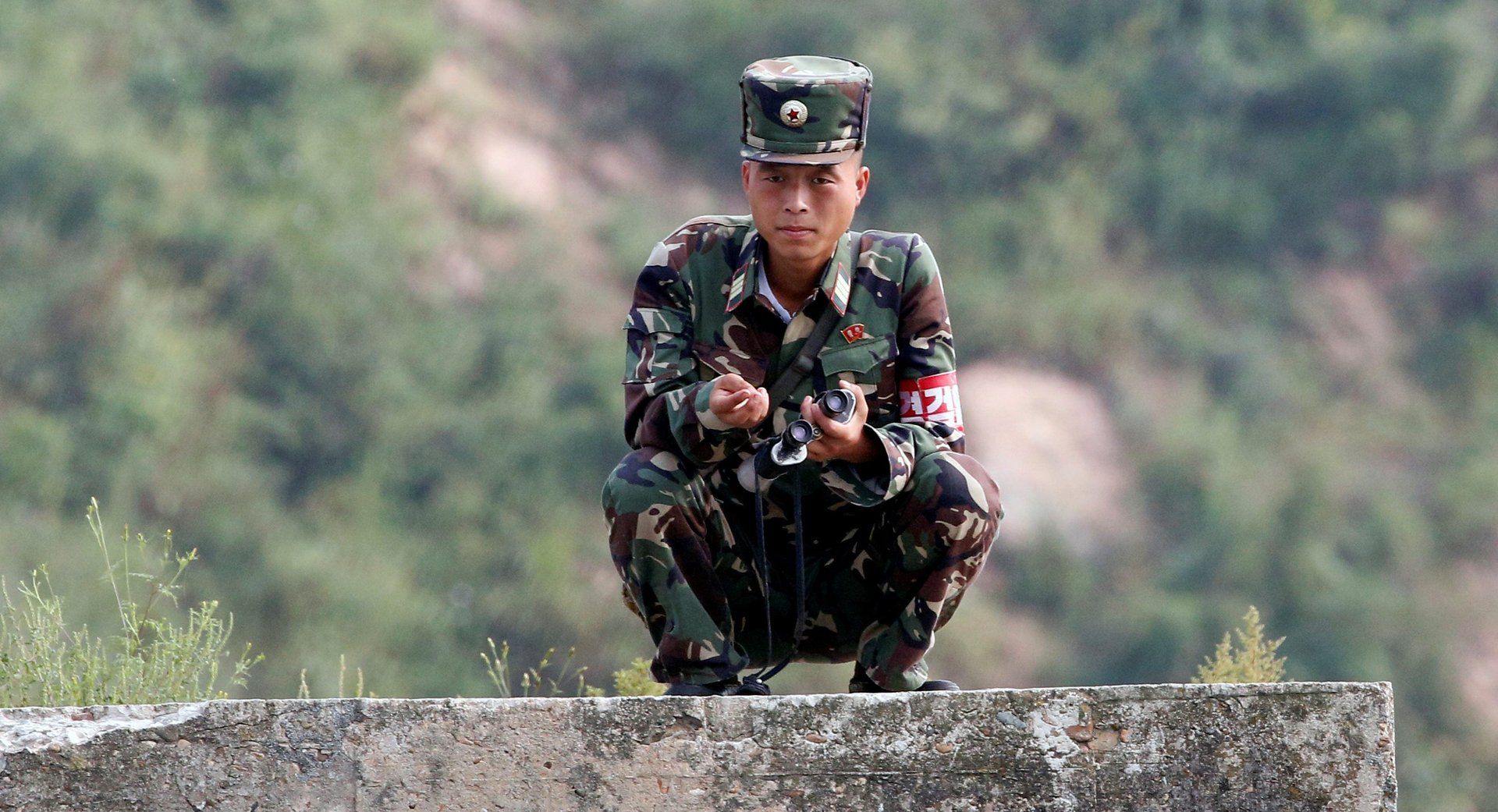Fewer North Koreans have defected to South Korea this year
After a spike in defections from North Korea to the South last year, the number of people making the dangerous journey has dropped significantly in 2017.


After a spike in defections from North Korea to the South last year, the number of people making the dangerous journey has dropped significantly in 2017.
According to South Korea’s unification ministry, between January and August this year 780 North Koreans defected to the country, marking a 12.7% drop from the same period last year. The decrease comes after the total number of defections to South Korea in 2016 hit its highest level since 2013, at 1,417 defections.
The unification ministry said that fewer people are defecting in part because both North Korea and China have tightened surveillance over their shared border. Park Byeong-seug, a member of the ruling Democratic Party in South Korea, said that the Chinese government has put up signs near the border warning of stern punishment for those who help or employ those escaping North Korea.
Last year was also significant in terms of defections from North Korea to South Korea because of an unusually high number of elite defectors. Among them was a senior North Korean diplomat in London, Thae Yong-ho, whom South Korea says is the highest-ranking official to have ever defected. In a recent interview, Thae spoke of a purge against high-ranking security officials by North Korean leader Kim Jong-un last year.
Also notable were the defections last year of 13 employees at a North Korean restaurant in the Chinese city of Ningbo. North Koreans who are allowed to go overseas to work at these restaurants—which are used to generate money for the regime—are generally chosen from better-off families.
The share of farmers and laborers who defected from North Korea this year increased 16.1 percentage points from last year to 57%, according to the unification ministry, compared to 3.5% for the share of soldiers and government agents. These include a soldier who crossed the border at the Demilitarized Zone in June.